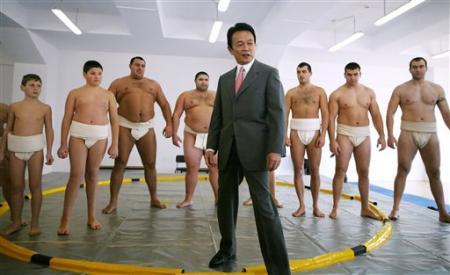Today I want to talk about the “Foreign Crime Files” manga. It’s an offensive, disgusting book that tries (albeit poorly) to exploit Japanese people’s fears and prejudices. By now many of my readers will have heard about this since the Japan bloggers have duly reported it with furious anger. But my preliminary and very unscientific research seems to indicate that this book has not made much of a splash in Japan as of yet. It’s enough to make me worry that this outrage might actually be building more of a market for the book (and a platform for its fear-mongering) than it would have had otherwise.
The sole Amazon review (1 star): “Uses lots of discriminatory phrases, low level content. It seems as if the author has a major inferiority complex as a Japanese person. This will engender a bias against foreigners among ignorant Japanese people.” Also from Amazon: People who bought this book also bought “Completely Master the Japanese Language Proficiency Test Level 1!” (a test of Japanese as a second language). Amazon rank: 1004 in books.
Japanese-language Technorati results: zero!
2ch presence: One very short thread on the “Books” board. Overview:
Thread starter: Did you know about GAIJIN HANZAI FILE, this horrible, discriminatory book?!
2channeler 1: It’s an ad!
TS: No, it’s not an ad, I just want to know why Japanese people allow this kind of thing?
2channeler 1: Well, I guess it’s more that we don’t really care about foreigners.
2channeler 2: My opinion is that people who overreact to this discrimination are pretty depressing. Just leave it alone. The fact that the foreign media has picked this up is just what I’m talking about. They understand that life and racial discrimination can’t be separated. A worldview that relates and compares issues to one’s own life is very Christian.
No mention in a news thread on the lower “foreign crime rate” reported by the National Police Agency.
Google results: The multitude of booksellers’ websites selling the book and foreign Japan bloggers’ reactions, plus one blogger/J-pop singer cocco (wiki), who explained: “It isn’t being talked about much by Japanese people yet, but one book (Foreigner Crime File) is enraging foreigners who live in Japan… I worry that this might turn into an international problem!”
According to cocco, there is a movement going on within mixi to boycott Family Mart over this book, one that debito has helped organize outside of mixi and that has in the end kept it off the shelves there as well as in other places.
It could be early to conclude that Japanese people just aren’t all that interested in this book, or perhaps they’ll just never have the chance to read it due to the success of Debito and others to get this book censored. But in this era of viral marketing and unscrupulous people, you have to wonder if all the coverage we foreign Japan bloggers are giving this awful book are giving it more attention than it ever really deserved. I feel like this book would have died a death in the sleazy porno section of the convenience stores if it weren’t for its almost made-for-the-Internet inflammatory illustrations.


